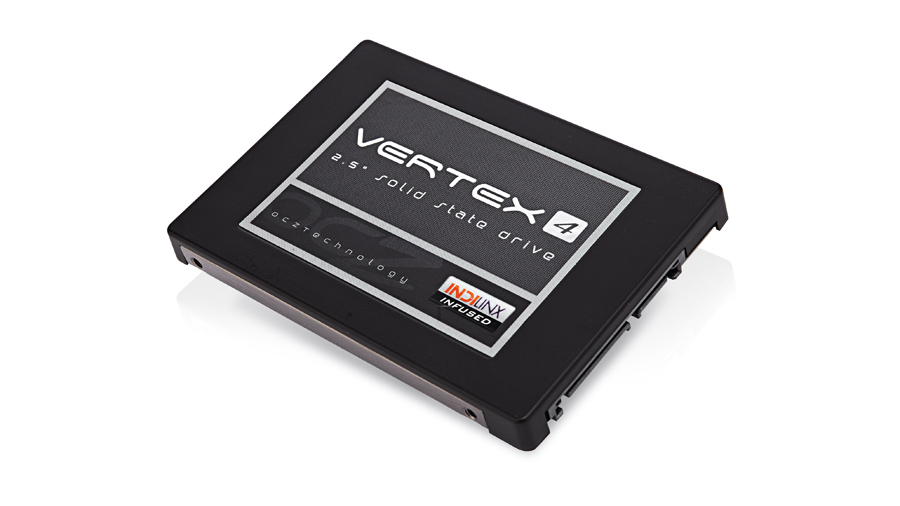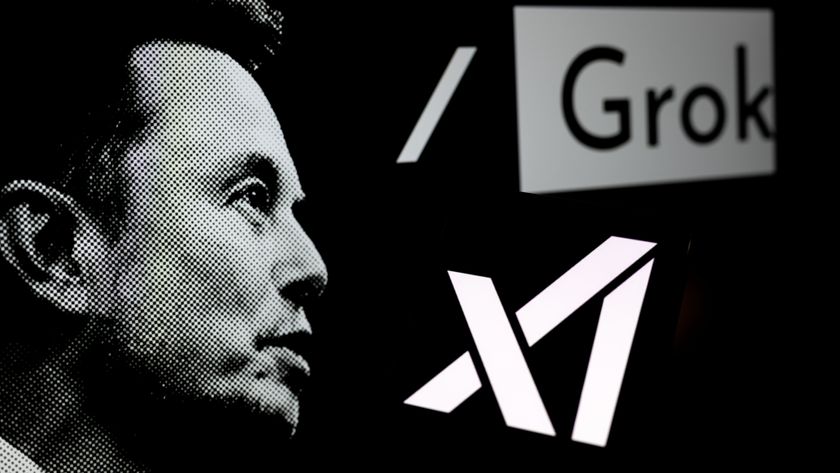TechRadar Verdict
Pros
- +
Excellent all-round performance
- +
Price
- +
5 year warranty shows confidence in design
Cons
- -
ZIP file decompression could be better
- -
Longevity not proven yet
Why you can trust TechRadar
The SSD controller wars are hotting up with the arrival of the new OCZ Vertex 4 256GB. It's powered by OCZ's new in-house Everest 2 controller chipset, though the true nature of the Everest 2 takes a little explaining. More on that in a moment.
On paper, the Vertex 4 looks like a serious threat to the performance solid-state drive competition, which includes the Intel 520 Series SSD 240GB, Crucial M4 256GB and Samsung 830 Series 256GB. The numbers OCZ is claiming for peak throughput are good, but not truly dramatic.
There are now a wide range of SSDs on the market capable of roughly 500MB/s for reads and writes, including the aforementioned Intel and Samsung drives. Instead it's the IOPS performance that will tweak your eyebrows, with figures of 90,000 and 85,000 IOPS for reads and writes respectively on this 256GB model.
To put those figures into context, OCZ's own Vertex 3 MAX IOPS 240GB drive, which trades heavily on its performance in this area, can only manage 55,000 and 65,000 IOPS by the same metrics. Add in a solid all-round specification that includes synchronous MLC flash memory and 512MB of DRAM cache and you have a genuine contender for the desktop SSD performance crown.
Mountainous
First, let's get the full identity of the OCZ Vertex 4's Everest 2 controller squared away. It turns out it's actually a rebadged Marvell controller and not a custom chip, as was the Everest 1 controller. We're fans of the latest Marvell controllers, so that's no bad thing.
Moreover, OCZ has cooked up its own firmware, which is at least as important as the specification of the chip itself. In fact, OCZ says there's very little carry-over in terms of the firmware progression from Everest 1 to Everest 2.
One of the big changes is a major reduction in write amplification. That's something competing firmwares from the likes of Intel have previously handled better. Excessive write amplification has all sorts of nasty implications, including poor performance and reduced longevity, but OCZ claims the Vertex 4's write amplification is now on a par with the best in the industry.
Intriguingly, OCZ says it achieves this without the sort of compression technology that can undermine the performance of drives based on the SandForce SSD controller chipset, such as Intel's 520 Series.
Significantly, it has upped the warranty for the Vertex 4 from three to five years, which says a lot about its confidence in the new firmware. What's more, OCZ claims to clock the chip higher than you'll see in other solid-state drives based on Marvell controllers.
The Everest 2 lifts the Everest 1's 333MHz clock speed up to 400MHz. Oh, and there's a chance the 256GB Vertex 4 is actually using the very newest 9187 revision of the Marvell controller, which we haven't yet seen in a shipping drive.
More marvellous
You could certainly argue that if all that sounds good, it would have been even better if OCZ had been entirely up front about the hardware in the first place, rather than appearing happy for people to misconstrue the Everest 2 controller as proprietary silicon. But it's becoming increasingly clear that controller firmware is at least as critical, and perhaps more so, than the controller chip itself.
So we don't blame OCZ for wanting to emphasise the unique changes it has made to the Everest 2 chipset.
As for the rest of the drive's specification, we're talking 25nm synchronous MLC NAND memory and 512MB of DDR3-800 DRAM. On paper then, the new OCZ Vertex 4 looks to have everything that's required to take on the biggest noises in the SSD industry.
Benchmarks
With SSD prices tumbling, the 240 to 256GB segment is rapidly becoming the sweet spot for value. Handily, it's also the capacity where SSDs perform at their very best. We recently discovered that performance actually drops off as you get above the 256GB mark and doesn't scale up as you move through the capacity tree.
That all makes the competition for the new Vertex 4 particularly tough. Intel's latest effort, the 520 Series combines SandForce grunt with reliability, while Crucial's M4 is a good all-rounder and offers an interesting comparison as it too has a Marvell controller chipset.
Nevertheless, OCZ is bringing its own firmware to the table and one that promises a unique blend of performance and reliability. With the SandForce drives now really showing up their failures when it comes to the incompressible data, Marvell controllers and other firmware additions are really taking the lead with SSDs.
The performance lead may not be evident in the ATTO test, with the SandForce drive showing its dominance in straight-line speed, but as soon as you start throwing AS SSD benchmarks around things change. The real key is the 4K random write performance, which is a good indicator of how a drive will perform in normal day-to-day use. The Vertex 4 is a good way ahead of either the other drives in the test.
Sequential read performance (incompressible)
AS SSD: Megabytes per second: Bigger is better
OCZ VERTEX 4 256GB: 466
CRUCIAL M4 256GB: 377
INTEL SSD 520 240GB: 494
4K random writes performance
AS SSD: Megabytes per second: Bigger is better
OCZ VERTEX 4 256GB: 70
CRUCIAL M4 256GB: 51
INTEL SSD 520 240GB: 50
Sequential read performance (compressible)
AS SSD: Megabytes per second: Bigger is better
OCZ VERTEX 4 256GB: 528
CRUCIAL M4 256GB: 446
INTEL SSD 520 240GB: 555
Sequential write performance (compressible)
AS SSD: Megabytes per second: Bigger is better
OCZ VERTEX 4 256GB: 486
CRUCIAL M4 256GB: 286
INTEL SSD 520 240GB: 527
Sequential write performance (incompressible)
AS SSD: Megabytes per second: Bigger is better
OCZ VERTEX 4 256GB: 454
CRUCIAL M4 256GB: 265
INTEL SSD 520 240GB: 290
Application performance
Sequential write performance (incompressible)
AS SSD: Seconds: Lower is better
OCZ VERTEX 4 256GB: 26
CRUCIAL M4 256GB: 27
INTEL SSD 520 240GB: 25
Top-drawer
As our benchmark results show, the Vertex 4 256GB produces numbers right out of the top drawer. As ever, SandForce-based drives still pinch the top spots when it comes to outright throughput with compressible data, but the gap isn't particularly huge and the OCZ drive turns the tables elsewhere.
For example, with incompressible data writes it spanks Intel's SandForce-based 520 Series to the tune of 454MB/s to 290MB/s. Ouch. But the real hammer blow involves random access performance, with the new Vertex 4 clocking up the highest performance numbers we've ever seen and roughly 40 per cent higher for random writes than anything else out there.
Given that random access performance is probably more critical to the subjective feel of your PC's performance, that's a significant advantage. If there is a disappointment, it's in the results of our ZIP file decompression benchmark.
On the one hand it's very much in the same ballpark as the competition, which is good. On the other, we had hoped to see some of the Vertex 4's on-paper superiority translate into real-world gains. With that in mind, the question remains regarding the true value of paying a premium for an ultra high performance drive.
Raw performer
The OCZ Vertex 4's hardware has a lot going for it. You get a Marvell-based controller chipset, which is one of our favourites, along with synchronous NAND flash memory and 512MB of cache. The result is impressive, in terms of both the claimed capabilities and our own test results.
With any new SSD though, reliability is the biggest question mark and OCZ has a little to prove compared with the best in that regard. Our actual test results are excellent and OCZ has clearly put in some legwork, but it will take sustained real-world usage for the OCZ Vertex 4's full colours to shine through as a result.
Still, if we had to pick a drive based on raw performance, the new 256GB Vertex 4 would clearly be it. The only snag is that OCZ has a little to prove when it comes to long term performance and reliability.
The new OCZ drive may still turn out to be a peach in that respect. It's certainly clear that OCZ is putting a lot more emphasis on longevity, not least with a significant reduction in write amplification as well as the new five year warranty, but for now, the jury is out.
Technology and cars. Increasingly the twain shall meet. Which is handy, because Jeremy (Twitter) is addicted to both. Long-time tech journalist, former editor of iCar magazine and incumbent car guru for T3 magazine, Jeremy reckons in-car technology is about to go thermonuclear. No, not exploding cars. That would be silly. And dangerous. But rather an explosive period of unprecedented innovation. Enjoy the ride.
Most Popular






